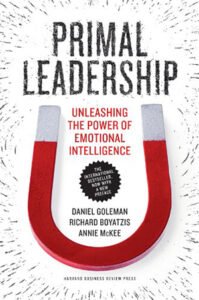|
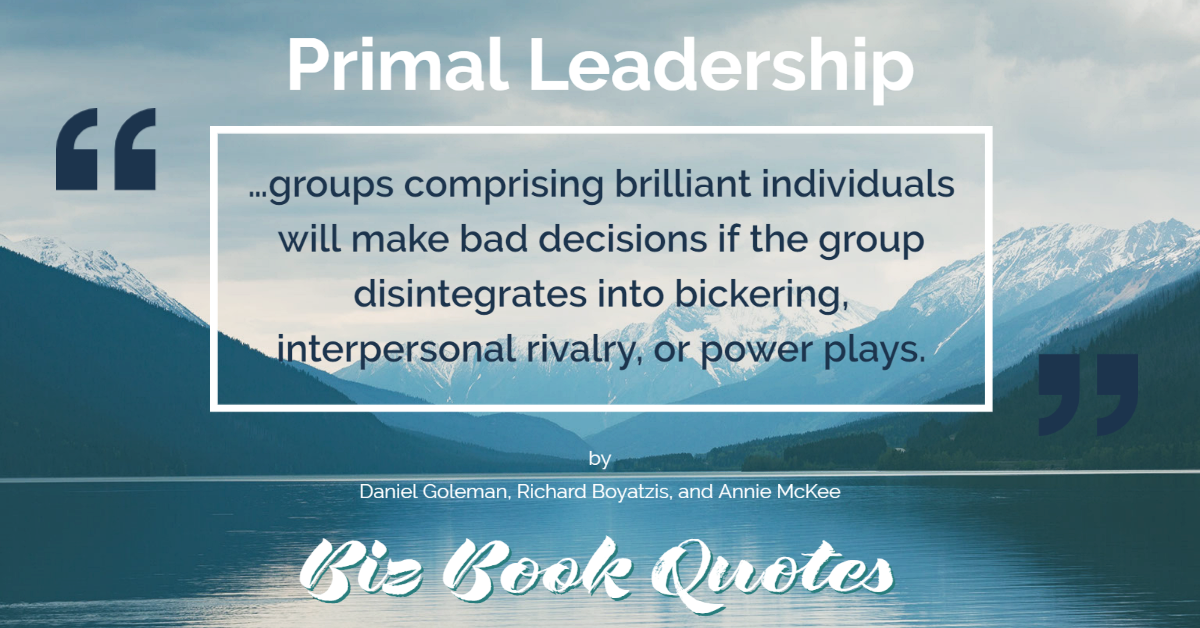
|
Primal Leadership:
…groups comprising brilliant individuals will make bad decisions if the group disintegrates into bickering, interpersonal rivalry, or power plays.
|
174 |
|
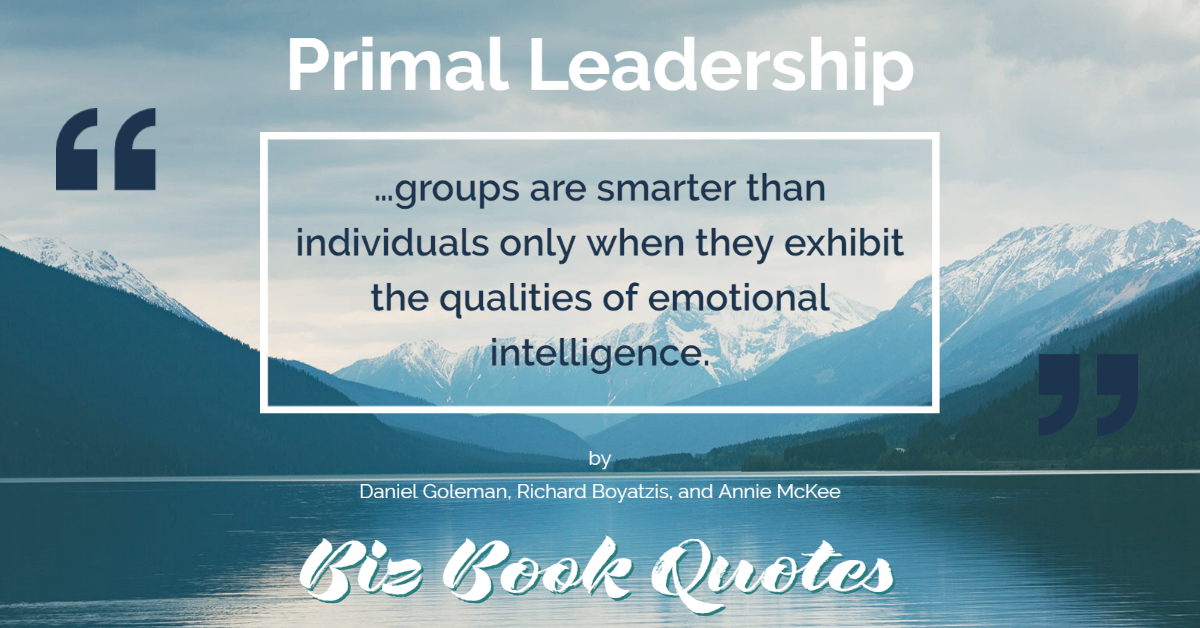
|
Primal Leadership:
…groups are smarter than individuals only when they exhibit the qualities of emotional intelligence.
|
174 |
|
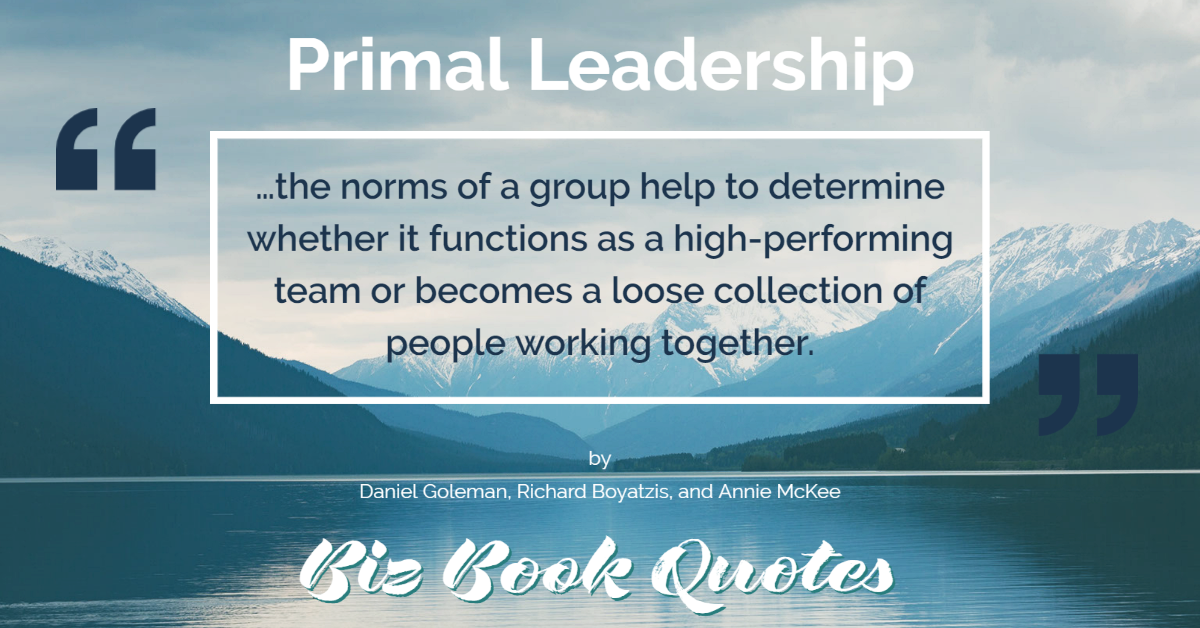
|
Primal Leadership:
…the norms of a group help to determine whether it functions as a high-performing team or becomes a loose collection of people working together.
|
175 |
|
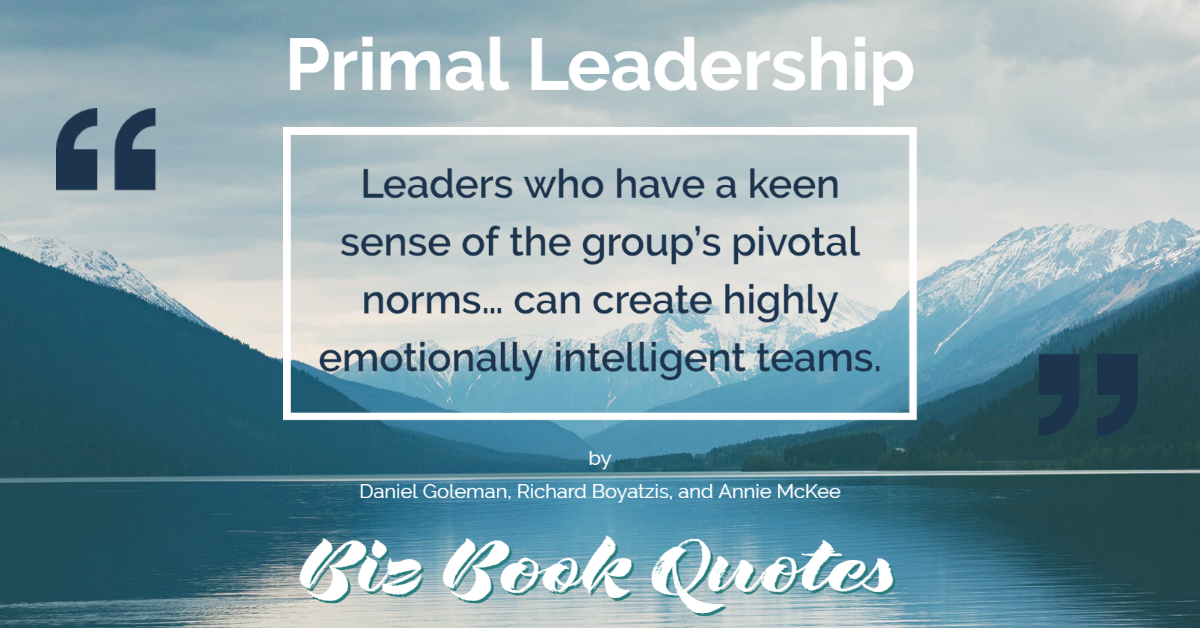
|
Primal Leadership:
Leaders who have a keen sense of the group’s pivotal norms… can create highly emotionally intelligent teams.
|
177 |
|
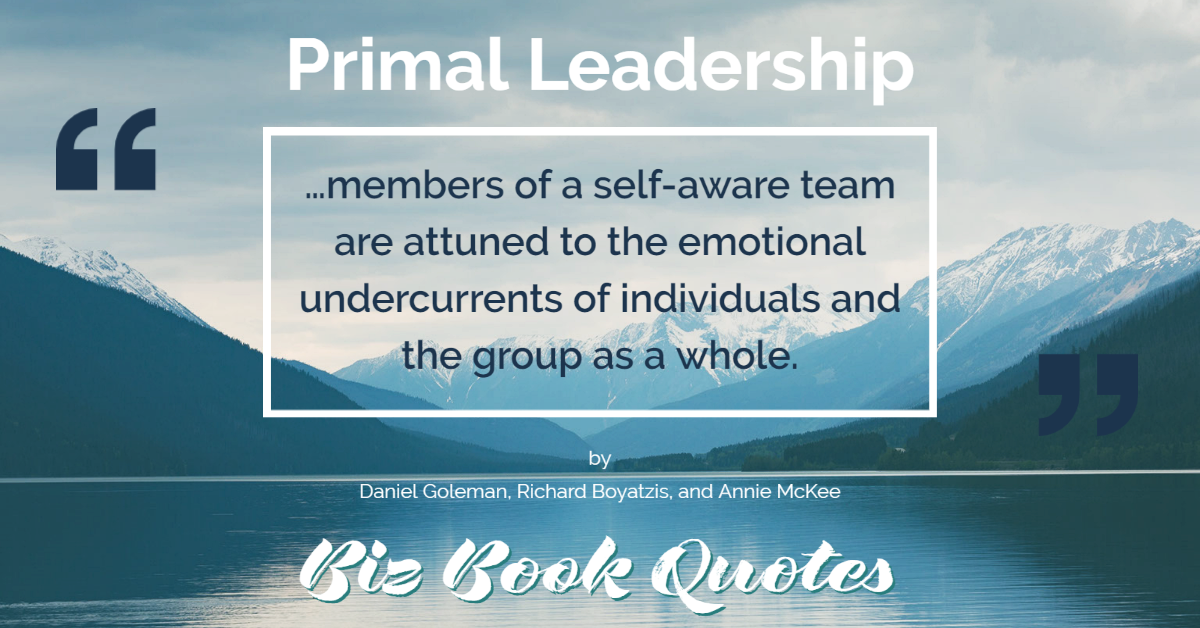
|
Primal Leadership:
…members of a self-aware team are attuned to the emotional undercurrents of individuals and the group as a whole.
|
178 |
|
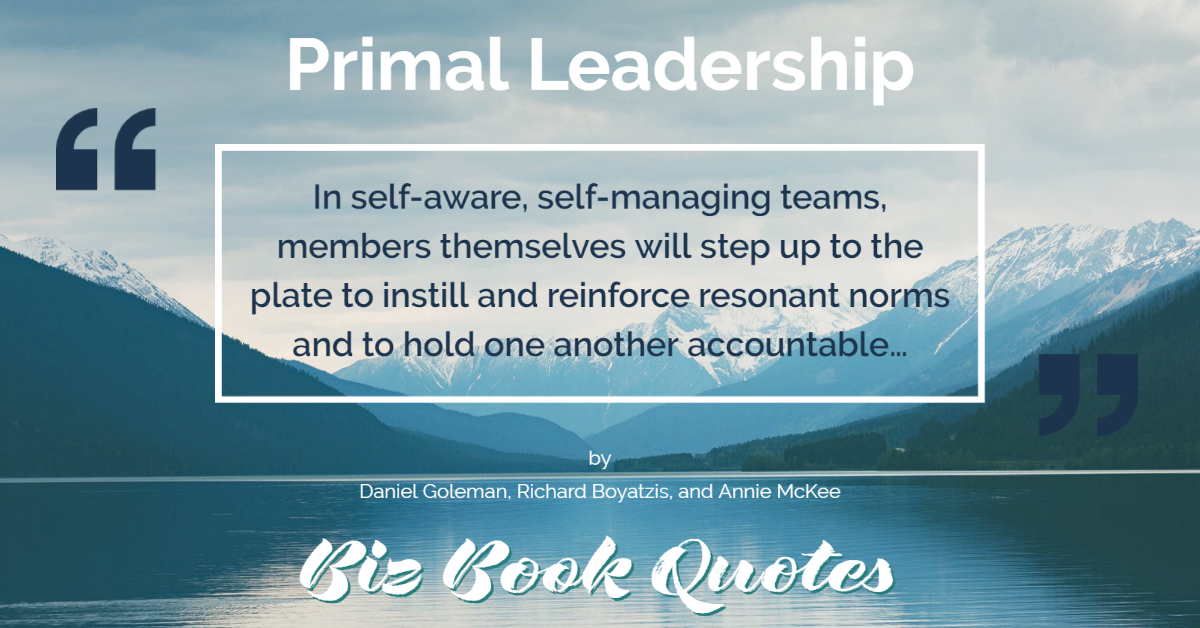
|
Primal Leadership:
In self-aware, self-managing teams, members themselves will step up to the plate to instill and reinforce resonant norms and to hold one another accountable…
|
181 |
|
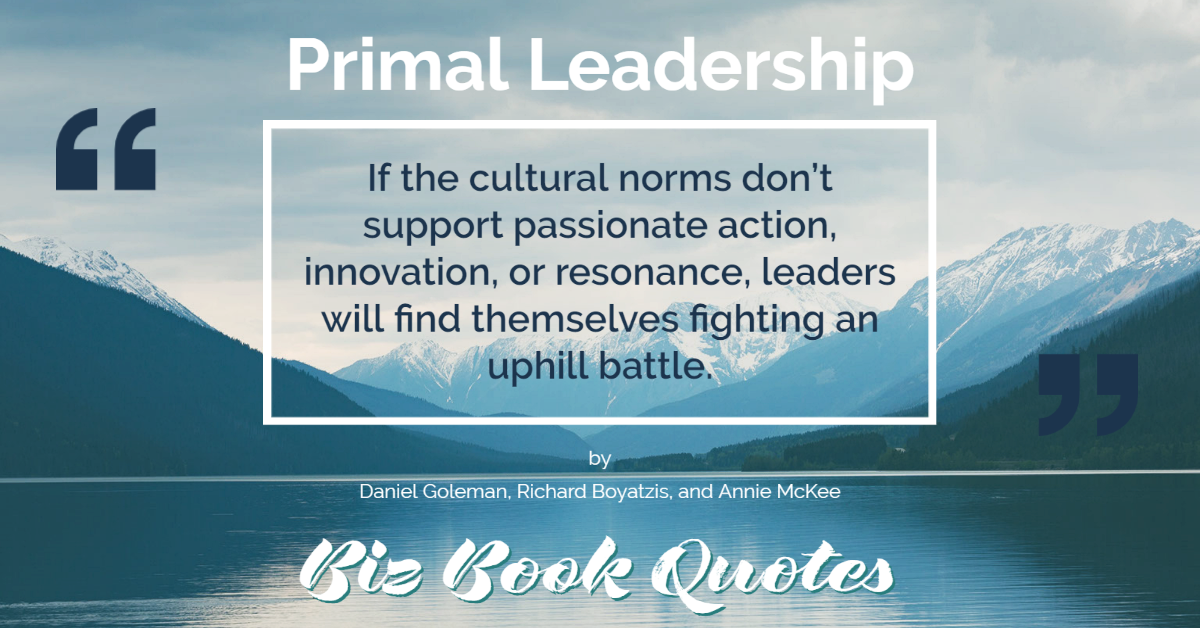
|
Primal Leadership:
If the cultural norms don’t support passionate action, innovation, or resonance, leaders will find themselves fighting an uphill battle.
|
197 |
|
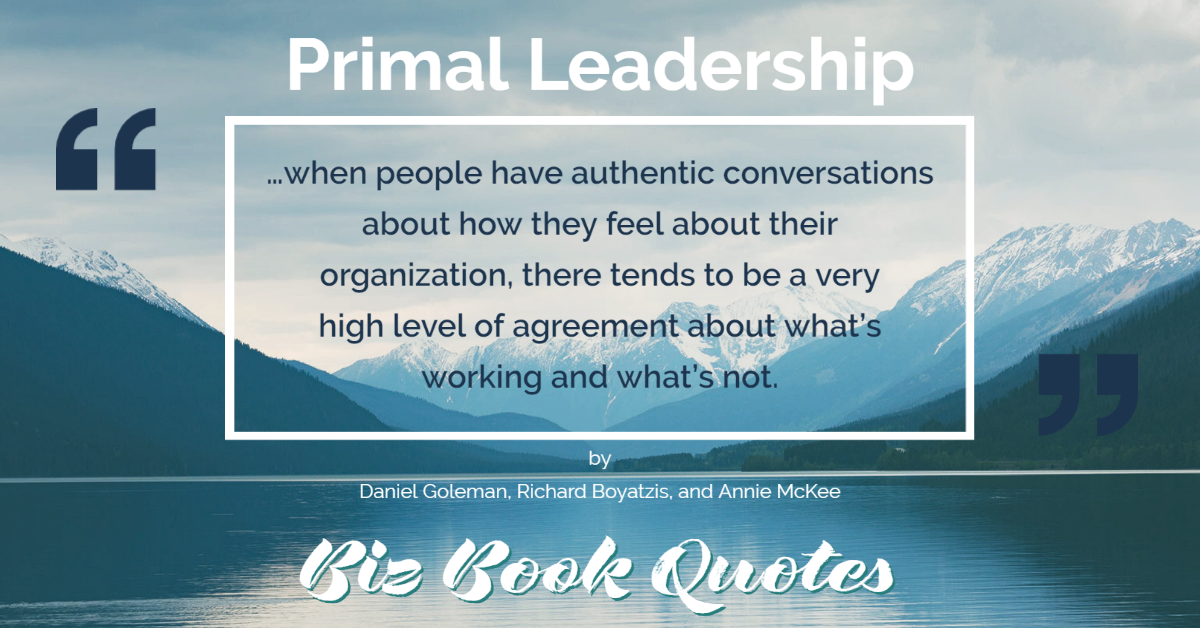
|
Primal Leadership:
…when people have authentic conversations about how they feel about their organization, there tends to be a very high level of agreement about what’s working and what’s not.
|
199 |
|
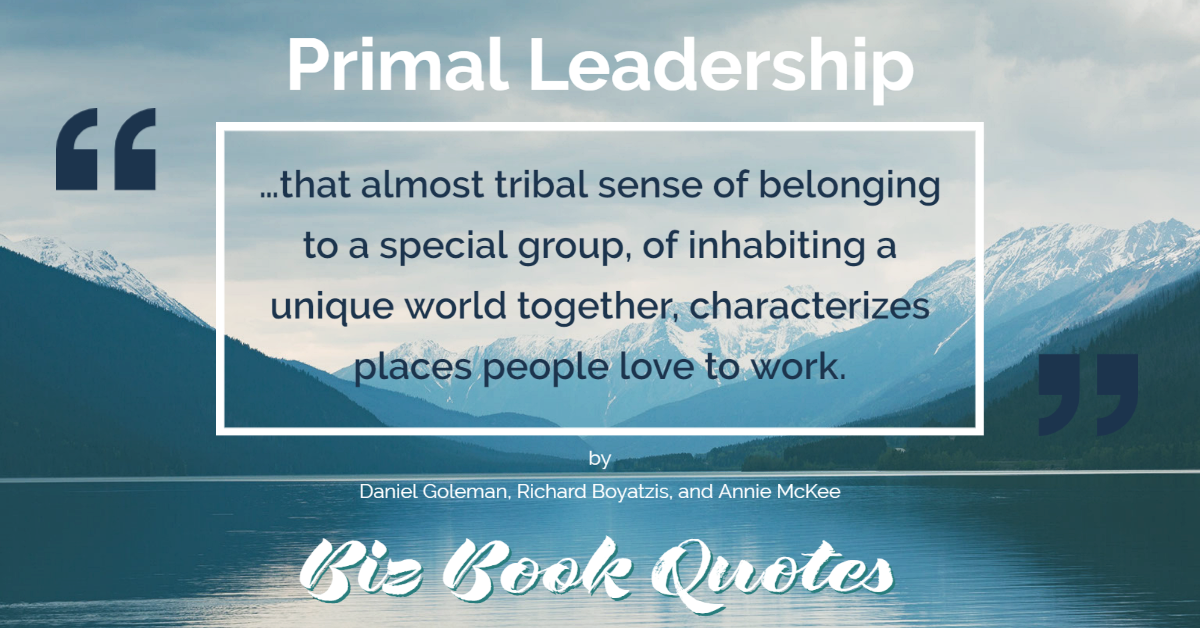
|
Primal Leadership:
…that almost tribal sense of belonging to a special group, of inhabiting a unique world together, characterizes places people love to work.
|
202 |
|
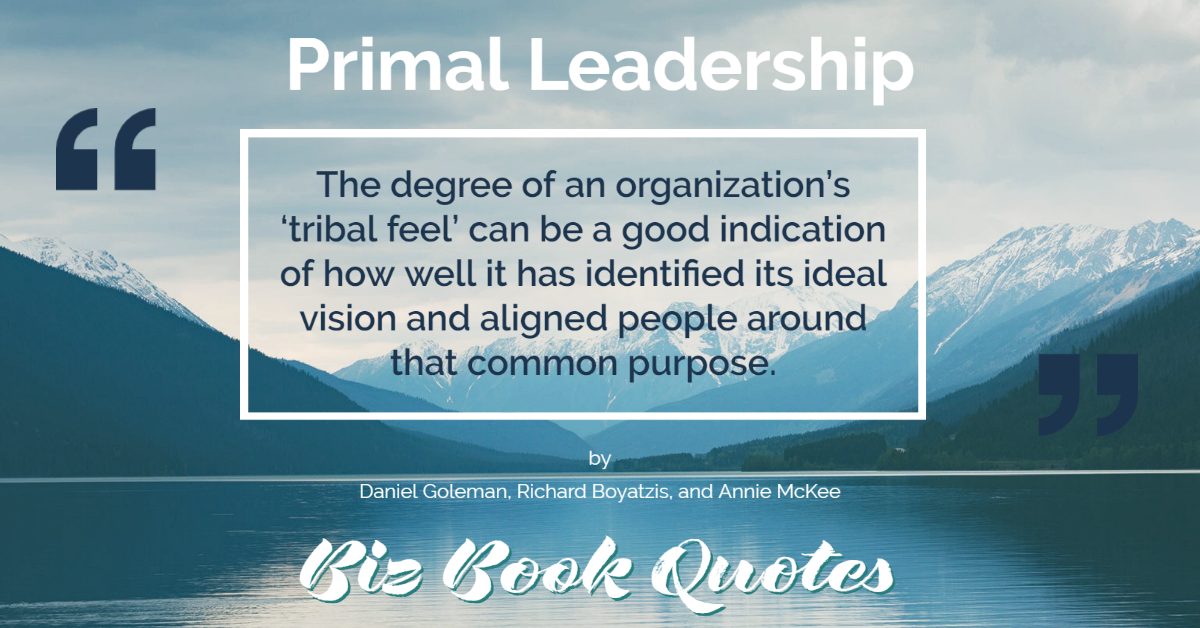
|
Primal Leadership:
The degree of an organization’s ‘tribal feel’ can be a good indication of how well it has identified its ideal vision and aligned people around that common purpose.
|
204 |
